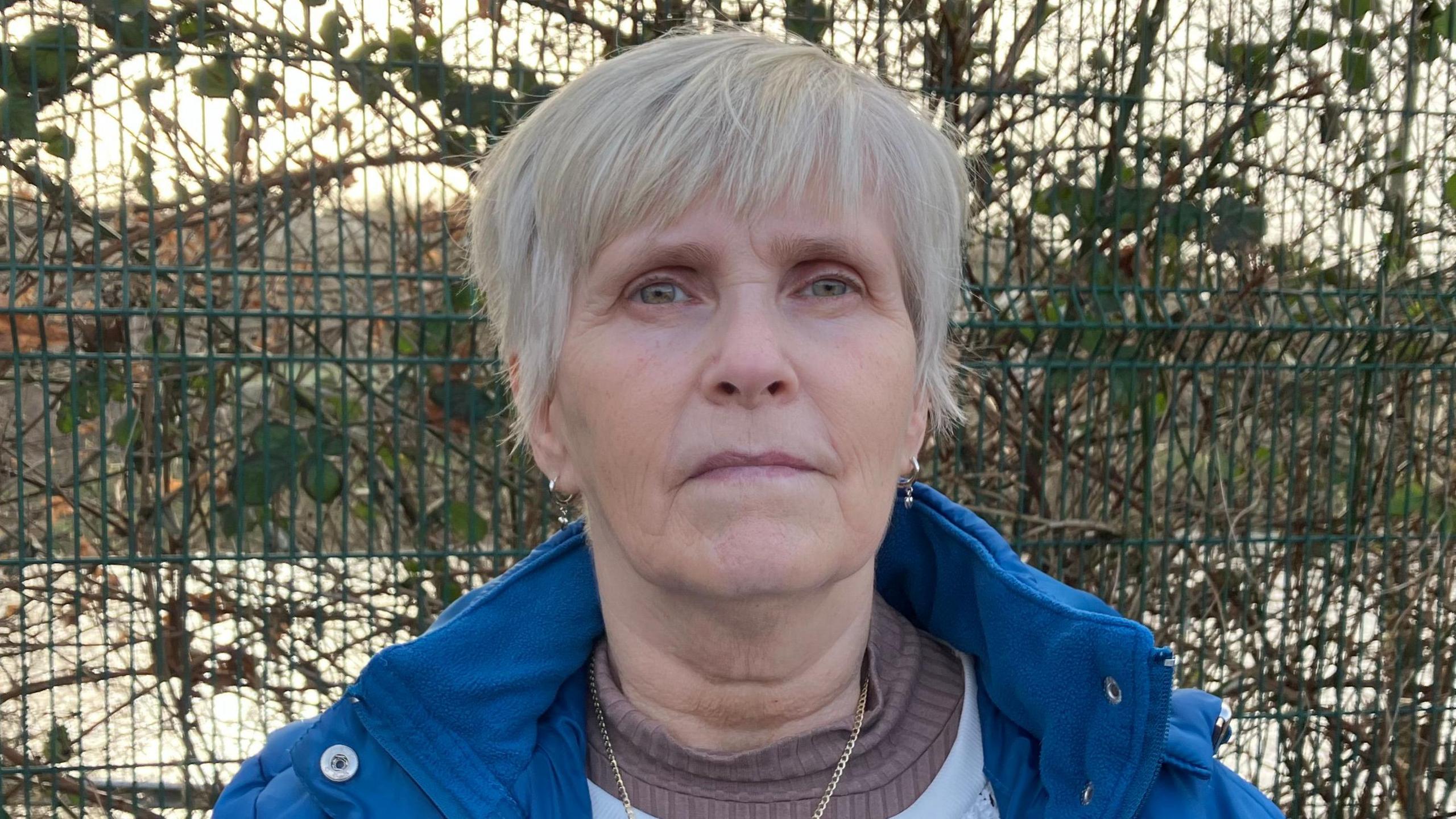'Being filmed giving CPR traumatised me and crash victim's family'
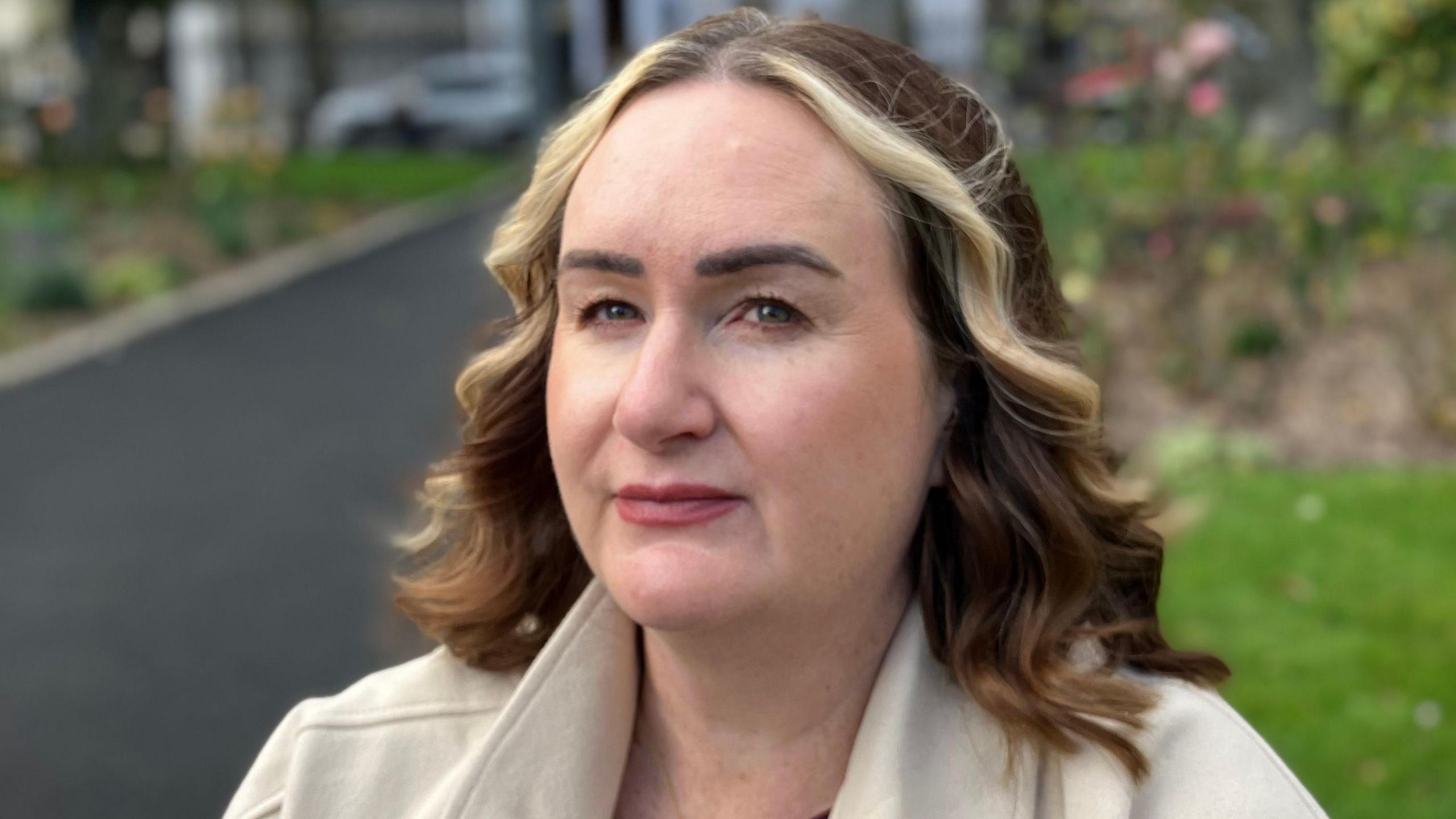
Fiona Ferris says the video of her giving CPR to a pedestrian who was knocked down and killed added to the family's grief
- Published
A woman who was filmed giving CPR to a man fatally injured in a road crash is calling for photographs and videos of crash sites to be made illegal.
Fiona Ferris was driving home through Newry, in County Down, with her two young children in the car last December when she attempted to help pedestrian Dominic McGrath, who had been knocked down by a bus.
Despite the actions of Ms Ferris and others, the 33-year-old died at the scene.
It was only later that Ms Ferris noticed she had been recorded, with the video sent to Mr McGrath's cousin - only 20 minutes after police told his family he had been killed.
"I've since spoken to Dominic's family and they learned from the police initially," Ms Ferris said.
"But very soon afterwards they received a message saying, 'I'm so sorry to hear about your cousin' and the video attached - of him lying in the street, in the dark, in the rain.
"How that must have felt? I can't even imagine."
Mr McGrath's relatives are still too devastated by what happened to speak publicly, but have said they were shocked and distressed.
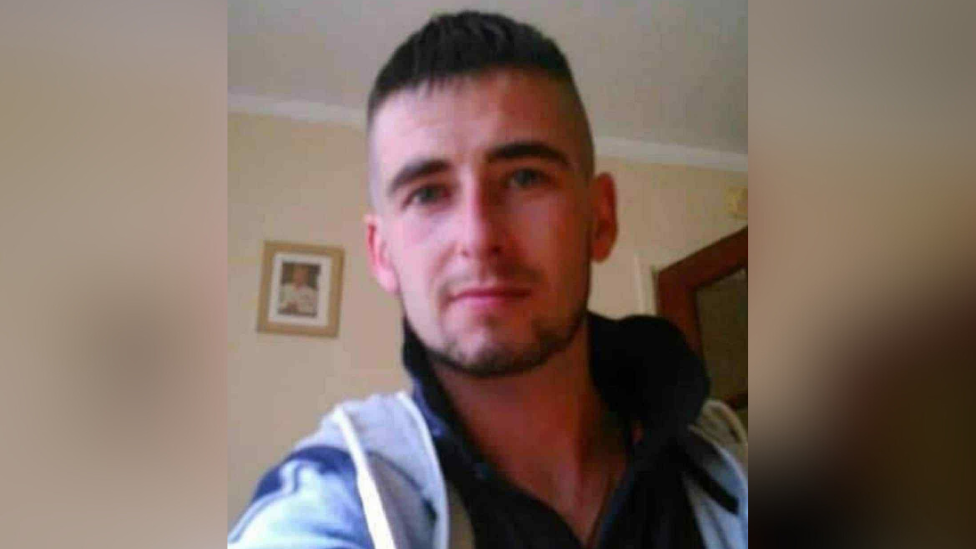
Dominic McGrath, 33, was killed after he was struck by a bus in Newry city centre in December 2024
Ms Ferris said she could not stop thinking about the video.
"I wondered who else had seen it, I wondered if I had given CPR correctly," she added.
"I was really sad, really angry, a whole flurry of emotions, the helplessness of where this video has gone.
"Once it's gone, it's out of your control, it's shared everywhere."
'Social responsibility'
The mother-of-two is calling for legislation to make it a criminal offence to record at such scenes.
"Having been in a video in such tragic circumstances, it beggars belief why people want to do that," she said.
"I'll never understand someone's mentality to do that, but I do think there's a social responsibility for people to stop and think.
"If that was your child, your son, your daughter, your mother, your father and that image was shared, think how that would feel.
"Because I would like to think people would think twice."
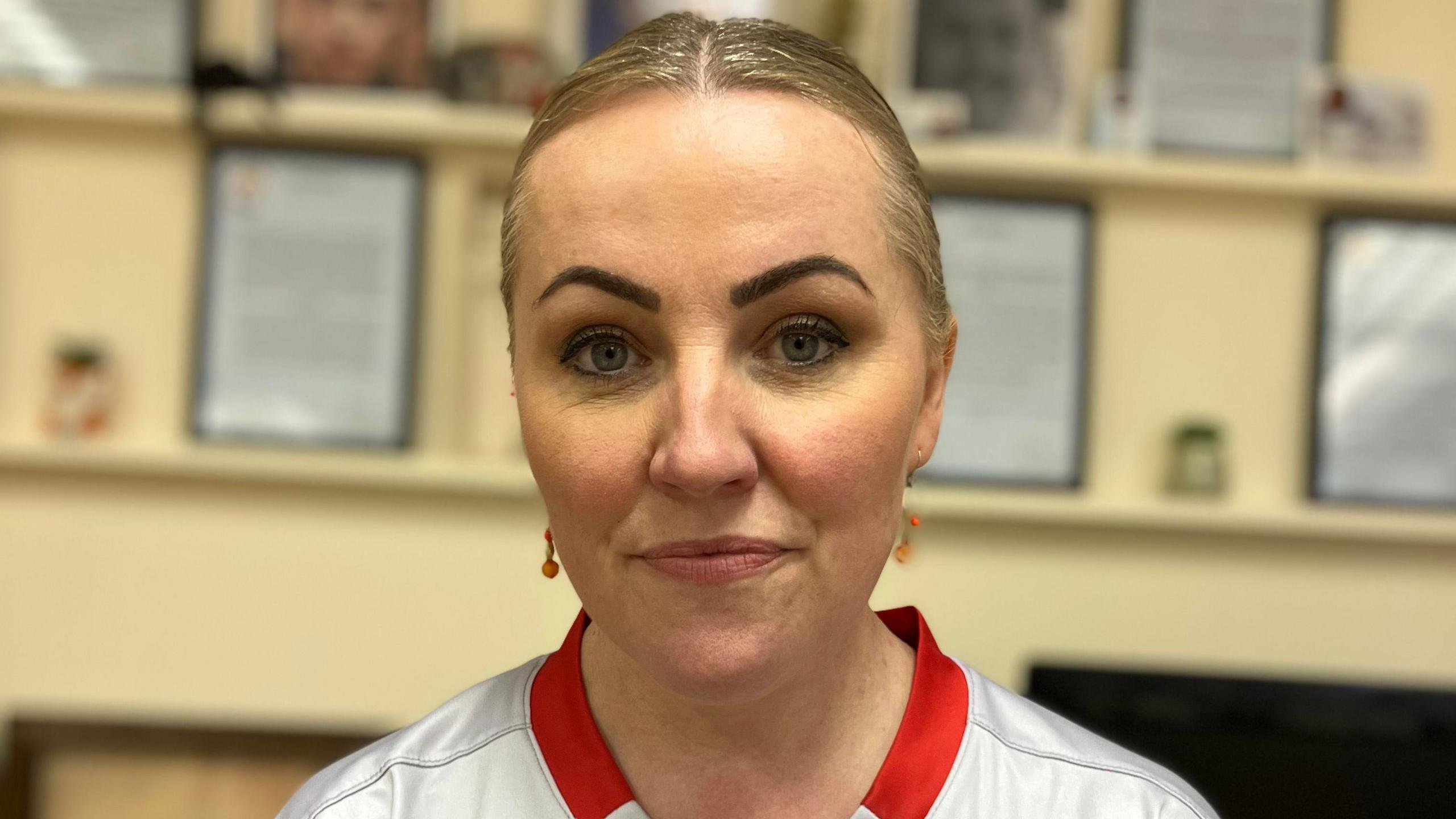
Tricia O'Neill says images of crash sites can be traumatising for the victim's loved ones
Ms Ferris sought help from the Newry-based charity Road Ahead, which supports witnesses and those bereaved or injured after crashes.
Volunteer Tricia O'Neill said it is becoming increasingly common for images to be taken at crash scenes.
"For a person to see a photograph or hear there's a photograph of their loved one, it is so traumatic," she said.
"Any road death is so traumatic and it can take a lifetime to process that, then you add that layer on top of this, of this image that other people have seen of the person they have loved all their lives, how horrific that must be for them.
"They'll never shake that image."
Ms O'Neill said criminalising taking pictures or videos of such sites will help to protect the individuals and their families, "thinking of their loved one's dignity - they can't protect them in death".
"Death is meant to be final, how can a person's dignity be protected when something is up online and people are sharing these images?
"Without that protection of legislation being in place, people won't learn."
'Digital record of trauma'
It is already illegal in other countries, such as Germany, to film at a crash site, particularly if the footage captures victims or interferes with the emergency services.
Campaigners for Caoimhe's Law, based mostly in the north west, believe the practice should be made a criminal offence.
They have spoken to parents, partners and siblings who have shared how they learned of their loved one's death on social media.
A spokesperson said: "This proposed law is not about censorship, it is about decency, dignity and the right to grieve in peace.
"Once images are shared online, they are never truly gone.
"Families are left with a permanent digital record of their trauma, forced to relive their loss again and again whenever that footage resurfaces."
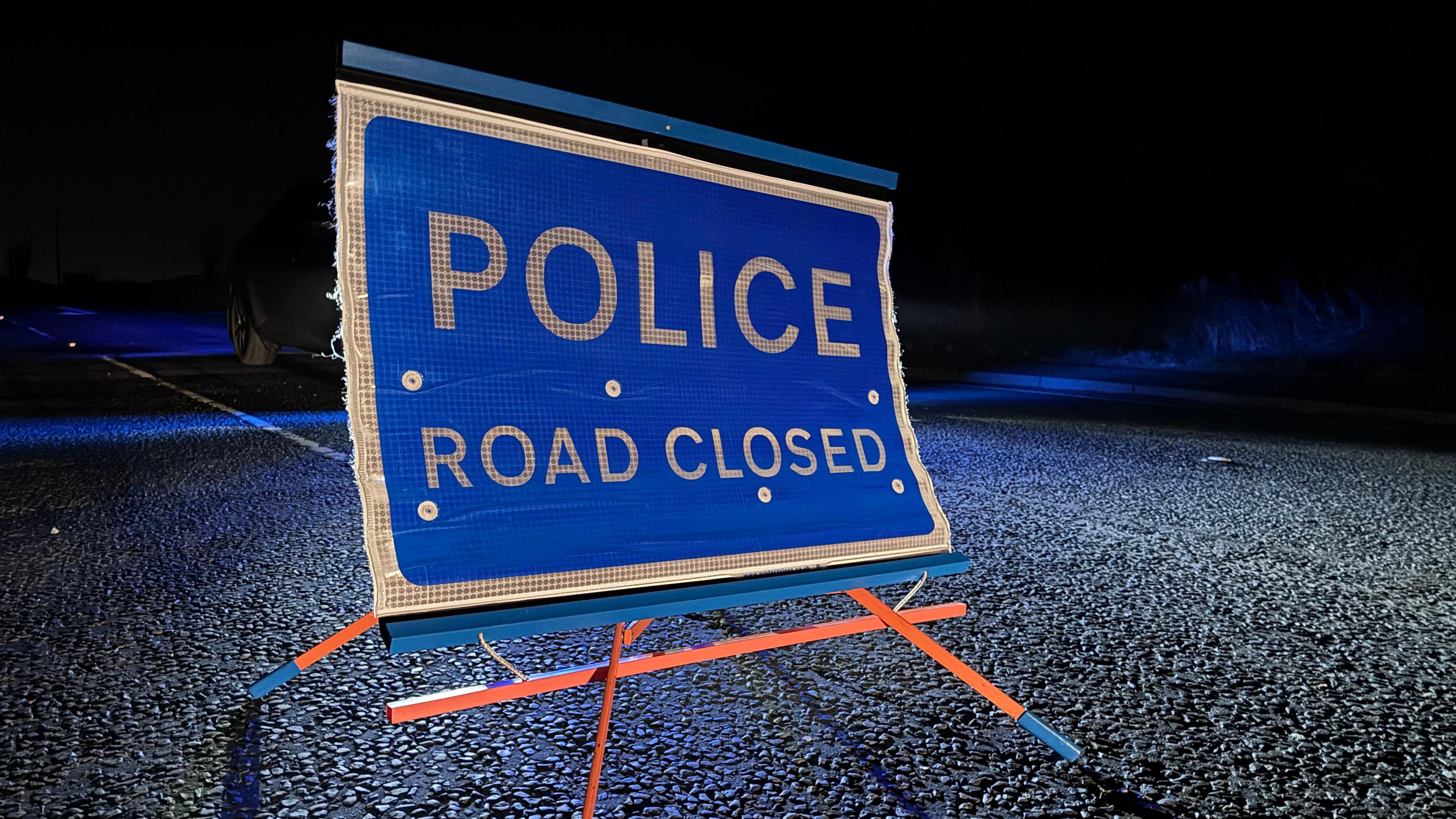
Police have issued appeals for members of the public to not share crash site pictures
There is already a law in place which makes it an offence to improperly use the public electronic communications network.
Last month, a woman was arrested over the alleged sharing of images of a pedestrian who was knocked down and killed in Newry city centre.
John O'Brien was killed last month after being hit by a lorry.
She has since been released on police bail.
Mr O'Brien's friends and family support the campaign for the change in the law, and a petition has been launched in his name online.
The Police Service of Northern Ireland (PSNI) have appealed to the public on numerous occasions in recent years not to share graphic images from crashes.
If you have been affected by any of the issues in this story, help and support is available over on the BBC Action Line.
Related topics
- Published19 December 2024
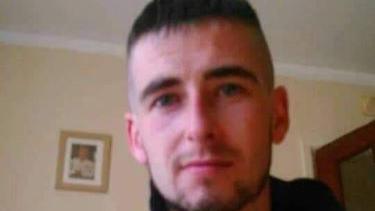
- Published4 November 2018

